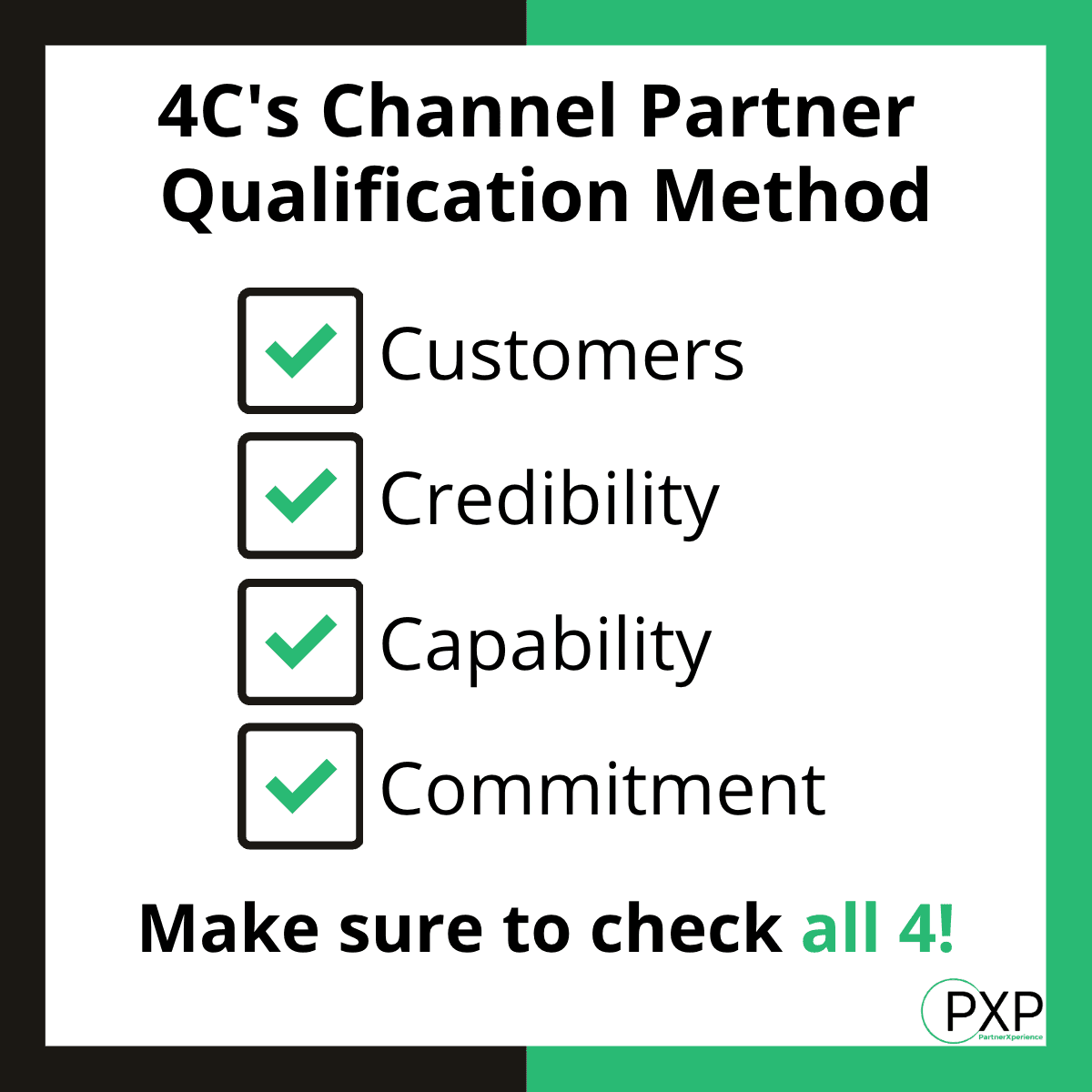Qualifying Channel Partners with the 4C Method
Qualify channel partners using the 4C Method: Customer Base, Commitment, Capabilities, and Cultural Fit for partnership success.
Customer Base
A potential channel partner must have a relevant and accessible customer base that matches the company's ideal customer profile. Partner candidates with an extensive customer base could still be disqualified if access is limited to only a small number of customers. Another influential factor to consider is the existing customer base's maturity and growth potential.
Credibility
When evaluating the partnership, a potential channel partner's credibility to represent the company’s products or services towards the customer is important. The partner’s portfolio should be in the adjacency of the company's offerings. Successful partnerships can be established between companies from different sectors, provided the combination is credible in the eyes of the end customer.
Capability
Channel partners may also lack the capability to promote, market, sell or service your product. Depending on the type of channel partner, typical points to evaluate the partner fit need to include the marketing and sales models and the way the accounting and invoicing systems are set up on the partner side.
Commitment
Independent channel partners have independent goals. You have influence but not control. A partnership will only be successful if both parties get their fair share. It is critical that the partnership does contribute to the potential partner’s company goals. A formal MOU, describing the joint goals and expectations, as well as committed investments into the partnership should always be mutual and explored early on before signing a formal binding partner agreement.
Make sure that all four Cs are positive. Missing only one likely results in a long period before the first and regular revenue is generated, if at all.

Credits:
This method has been developed by PartnerXperience.